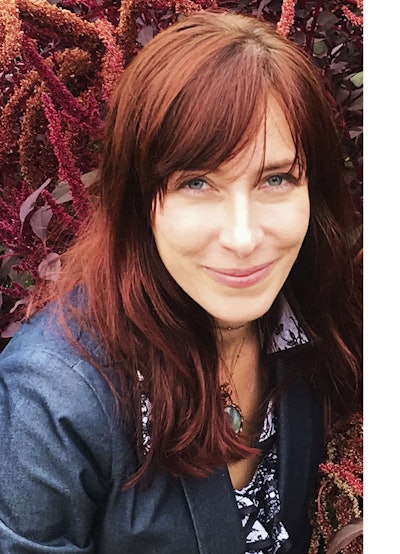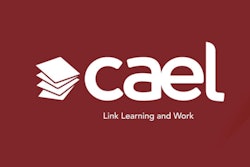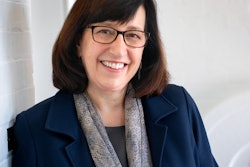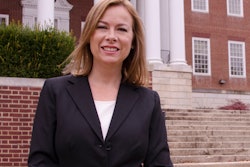As institutions announce their fall reopening plans, faculty members across the country have expressed their concerns about in-person instruction during the COVID-19 pandemic.
James Madison University (JMU) professors Dr. Dorothée Polanz, Dr. Thomas Adajian and Dr. Jennifer Lang-Rigal created a petition calling for more faculty participation and transparency in the decision-making process for reopening Virginia colleges and universities.
 Dr. Dorothée Polanz
Dr. Dorothée Polanz“Many colleagues reached out to us with concerns over very practical issues, since they will be the ones in the classrooms this fall,” said Polanz, assistant professor of French at JMU. “They expressed dissatisfaction with the top down and rather opaque process through which decisions are made, often by administrators who are not full-time instructional faculty.”
In the petition, faculty members requested to make their own decisions about teaching in-person classes and instructional plans for returning to campus.
Additionally, they said safety measures, such as free testing, must be put in place for the university community. For employees who test positive for COVID-19, the institution should make “specific provisions for covering health care costs” beyond their current plan, which includes mental health support, the petition said.
Since its creation two weeks ago, more than 1,200 faculty members from 20 Virginia institutions have signed the petition, which was inspired by statements from faculty at The Pennsylvania State University, Virginia Commonwealth University and the University of North Carolina at Chapel Hill.
“Teachers know best what takes place in their classroom and how their students feel and react,” said Polanz. “Whether they wish to teach in person or online, their perspective, concerns and questions are at the core of the academic mission.”
To craft the petition, virtual meetings were held with faculty members across the state to hear and understand overall concerns to highlight in the document. There was also a desire to unite faculty across the state to support a “common effort,” according to Polanz.
“Creating a petition for the whole state of Virginia was already a challenge because of the lack of communication channels between and within each university,” she said. “We also realized that discrepancies between instructions and guidelines at schools within the same state are considerable. Certainly, drafting a common petition helped us communicate better.”
The responses to the petition have been “overwhelmingly positive,” according to Polanz. At JMU, the faculty senate has used the petition to push for more shared governance.
Additionally, other Virginia institutions have used the “petition language” to create their own documents. Advice has also been given to secondary school faculty looking to start a petition.
 Dr. Elizabeth Sayrs
Dr. Elizabeth Sayrs“Too often, faculty, especially in non-union states like Virginia, tend to accept administrative decisions taken without their input,” Polanz said. “But we see signs that this is changing. We received donations to support our work, several colleagues in [Washington] D.C. have forwarded the petition to their colleagues or faculty senate and expressed their support.”
Other college faculty across the country have created petitions highlighting COVID-19 safety concerns. For example, more than 850 faculty members at Georgia Institute of Technology signed a petition after the university announced that masks are “encouraged” but “optional” in its reopening plans.
The petition called for Dr. Ángel Cabrera, president of Georgia Tech, to act independently from state regulations by requiring face masks and testing on campus. Additionally, faculty requested making “remote delivery the default mode of instruction” and limiting access to residence halls and other facilities to a small number of students.
“We feel compelled to express in the strongest of terms that not providing President Cabrera the autonomy to shape institute decision-making and policies in response to COVID-19 with the input of the campus community endangers our research and education missions and, most importantly, threatens the health, wellbeing and education of students, staff and faculty,” the petition said.
Midwest chapters of the American Association of University Professors also released a letter expressing their concerns and requested universities take action by “defending shared governance,” “ensuring workers’ economic security” and “protecting vulnerable employees. ”
To address reopening concerns, institutions such as Ohio University, have involved their faculty members, staff, administration and students in the planning process.
In May, the university created eight working groups, which included faculty volunteers, to discuss various aspects of planning for the fall. The university also launched a reopening website where individuals can submit their questions, concerns and responses.
“We really want to reinforce that it’s not just about individual health and safety but really about that mutual care for each other as we go through the fall,” said Dr. Elizabeth Sayrs, executive vice president and provost at Ohio.
Instructors who have concerns about returning to in-person instruction can fill out a form to request for alternative teaching arrangements. Alternative methods include moving a course entirely online, establishing a hybrid model and reducing the number of students in a classroom.
“We know that students are saying that they really value a face-to-face experience,” said Sayrs. “We also know many of them are asking for online experiences because they have some of the same concerns that faculty do. But we also want to make sure that we’re sitting safely in our space.”
She emphasized that the reopening plans will continue to evolve and encouraged the university community to remain engaged throughout the process.
“I think we want to be really mindful of all of the populations that are differentially impacted by the pandemic and are going to need really clear support throughout the many pathways that they may take in the fall,” Sayrs added.
Sarah Wood can be reached at [email protected].















